I’m positive that I am not the first person to arrive in Bali who was shocked about the trash situation.
When I first came to Bali, I stayed in Ubud, a busy hubbub known for its arts & cultural performances, amazing restaurants, and tourist-oriented markets. I lived in a homestay that was a bit offset from the town center, next to a holy river. In the mornings, I would wake up and walk through a bit of jungle, through some alleys with scary dogs, watching the Ibu’s do the Hindu blessing rituals for the day. I would walk all over Ubud, watching carefully where I step (the sidewalks are hilariously dangerous). Looking down, it’s impossible not to notice mounds of trash in the gutters, spilling out on street corners, piled in-between houses. The trash was everywhere. At night, when I would make my way back to the homestay, I noticed a particular burning smell— one that I told myself, “this smell will forever remind me of Bali.” I mentioned this to someone and they said, “Yeah, the Balinese don’t know what to do with their trash, so they burn it daily.”
Tourism brings in so much rubbish that it’s more than the island can cope with. The locals burn it because, in my opinion, they don’t see it as their problem. Can you blame them?
The trash issue is bad, but there are people doing things about it. And Green School wouldn’t be called “The Greenest School on Earth” if they weren’t trying to do something about it, either.
John Hardy started something called Trash Walks, where he goes into villages with a crew of volunteers and they spear and collect trash. I got to take part in one during my introduction days at GS. The Trash Walks have two rules: 1) You can’t spear a single piece of trash more than three times and 2) You have to talk about trash with each other.
There’s Kembali, a recycling center at GS. It comprises a thrift store, where secondhand items are resold, and a recycling centre for the school and community. KemBali is self-financing and any profits made go directly to causes benefiting the local community.
Another waste management initiative at school is Bye Bye Plastic Bags, a program started by a group of 6th graders who started a petition to ban plastic bags in Bali. They need a million signatures on the petition to get the Governor of Bali to fulfill his directive to ban plastic bags. Earlier this month two students gave a TED talk about their initiative. Awesome!
It’s clear that waste management is a huge deal in Bali, and since one of the missions of SV is to “walk the talk of Green School’, we have to take it very seriously. So this week for Community Day, we decided to delve into this topic. We had noticed that the waste bins were getting mixed, and t was clear that not everyone knew what could be recycled at Kembali.
We brought the kids together for a presentation on the waste issue in Bali. Then we gathered a ton of trash and recyclables from the bins and sorted them into piles. Is this kind of plastic recyclable? Yes! Is this aluminum foil recyclable? No! Can waxed boxes be recycled? Yes.. maybe? Let’s research it! Note: looking at the recycle stamps on certain products doesn’t mean anything in Bali since they are imported from other countries with different recycling standards. This makes recycling a bit tricky. For example, plastic bags can be recycled here, as well as plastic bottle caps.
The kids made huge readable signs with examples to put next to the bins. It’s super helpful for everyone, including the kitchen staff. Everybody wins, everyone recycles!

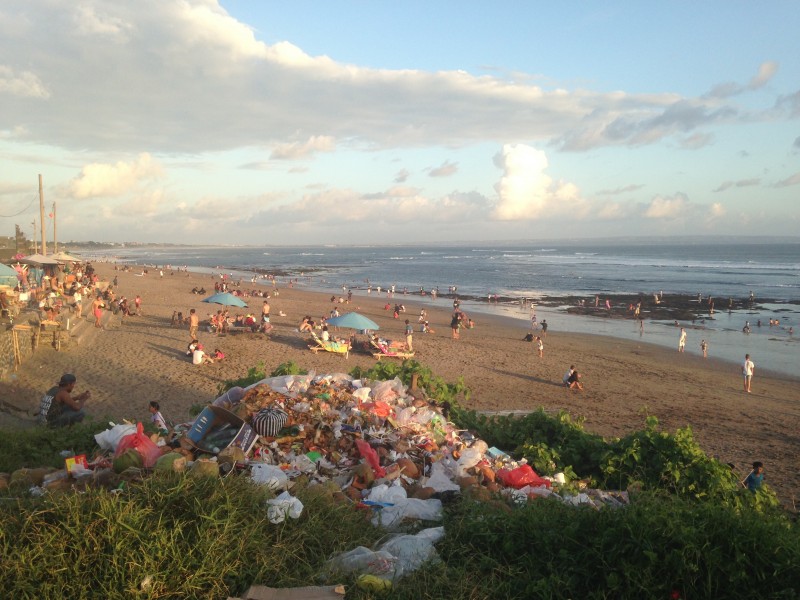
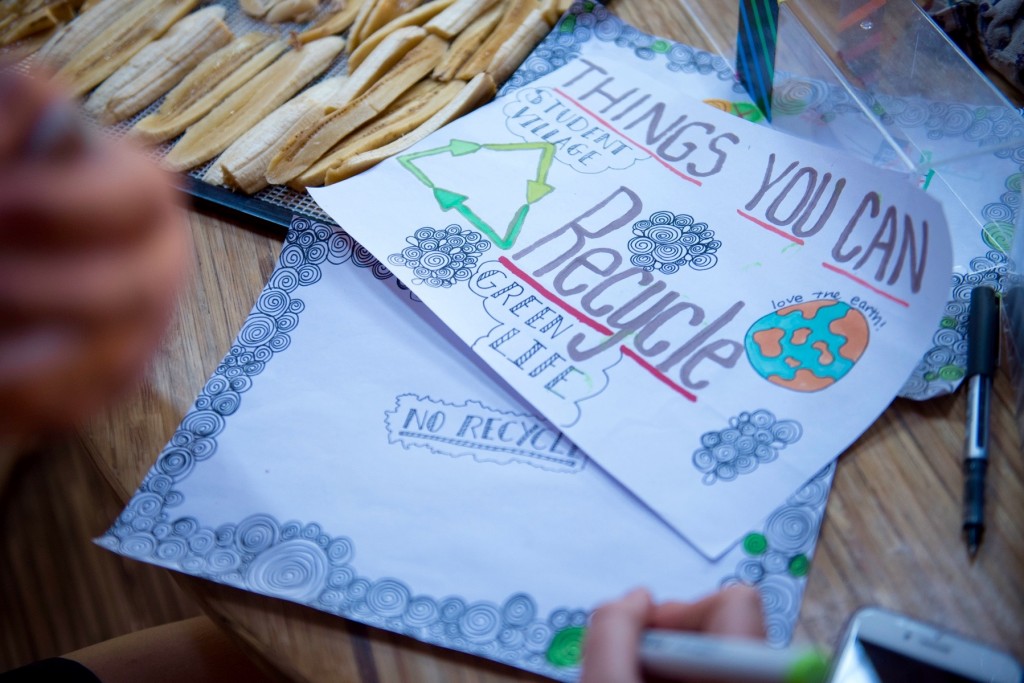
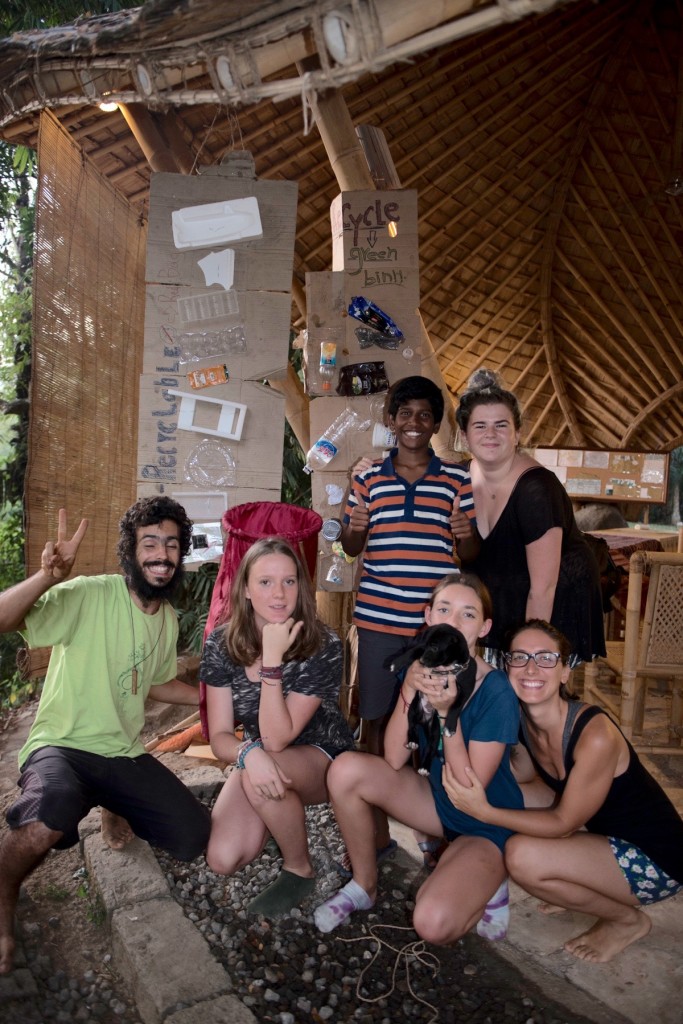
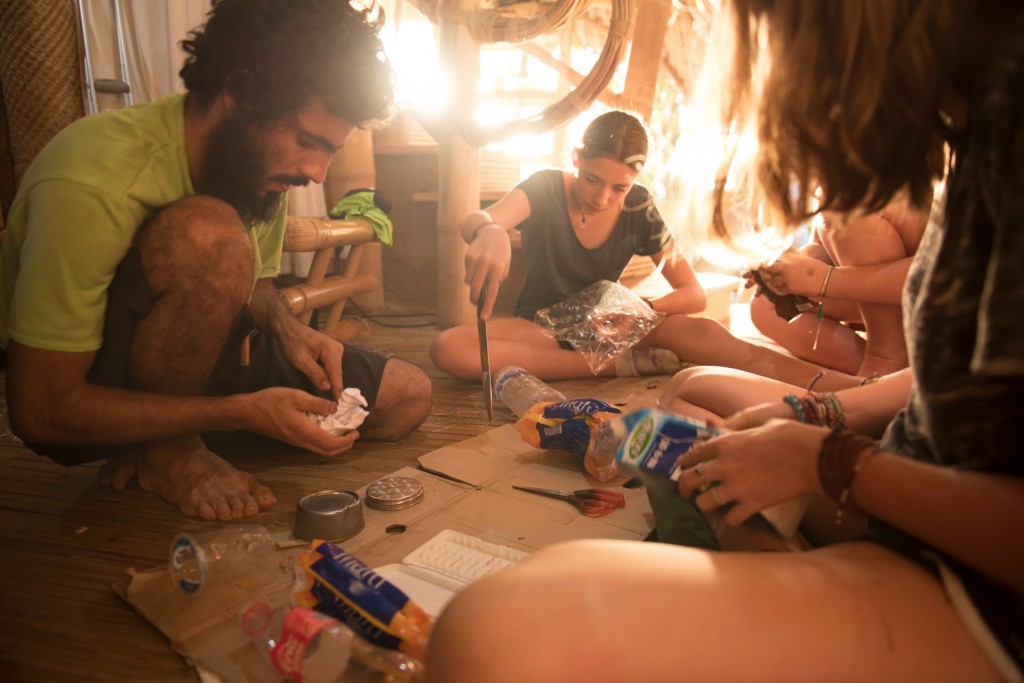
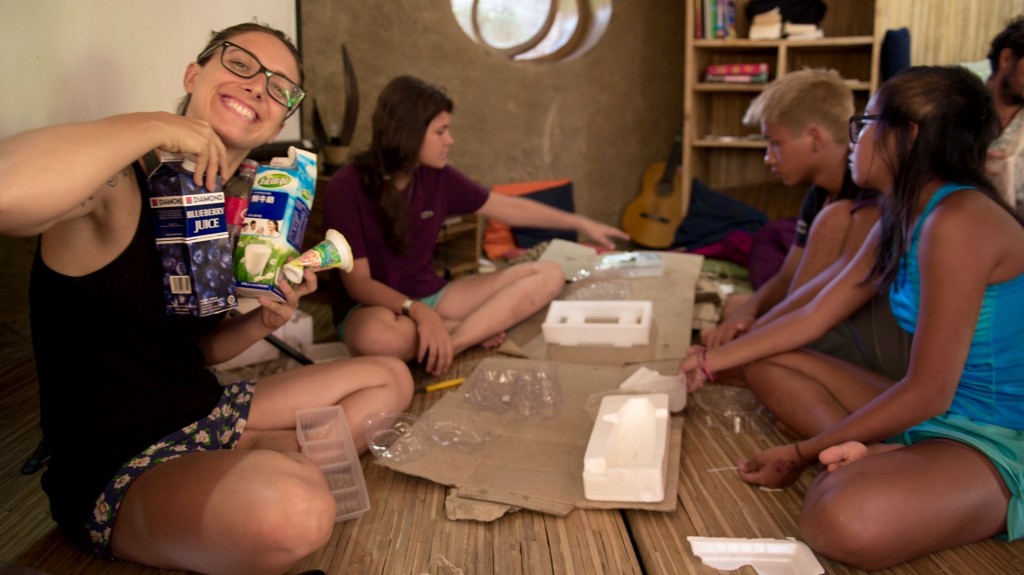
Be First to Comment